Name: Erik Koenig
Location: Lompoc, CA
Favorite Athletic brew: Paceline Pedal, Stump Jump
Instagram: https://www.instagram.com/erikkoenig_ultrarunner/
Erik Koenig always wanted to serve in the military. His father and his grandfather both served, and he wanted to serve his country as well.
But it wasn’t until the events of September 11, 2001, and the death of his close friend that he realized he really needed to serve in the military: To honor his friend’s life, to give back to his country and its citizens, and because he couldn’t imagine the opportunity passing him by.
“That’s when I made the promise and felt the need to go and serve the country like I said I would back when I was a kid,” says Erik. “I had a lot of good things going for me in culinary school. My career path completely changed. I always knew I wanted to serve because my dad served in the military, my grandpa served in World War II, and I’ve had family members in the military since the Civil War. So it’s kind of a big deal to our family.”
After ending his service due to an injury, Erik now works at the Federal Bureau of Prisons in his home state of California. He’s dived deep into exercise and focuses on improving his physical and mental health daily.
Like many of those who served, PTSD is a daily challenge, but it’s one he’s worked hard to overcome, and he’s also dedicated to giving back and helping other soldiers who are also struggling.
“I have deep empathy for others in the same situation who are either dealing with it or have dealt with it,” Erik says. “It’s not a pretty place to be. I share my story with people in need because I don’t want them to have to go through what I went through. If I can help by sharing that with another veteran, hopefully, that spares another life.”
***
Tell me a little bit about yourself and how fitness and sports came into your life.
With sports, I really had no choice! My mom was a swim coach and instructor, so I started swimming at 6 months old. I was competitive swimming at 3 years old.
That’s where it all started: swimming. I started playing water polo when I was 6 or 7 years old. Those were the two sports I played through high school.
I hated running. Hated it. I was born with a heart condition – I had a heart murmur and a hole in my heart, and I was cleared at 12 years old. Thankfully it finally went away. I think that’s why my mom kept me in swimming and didn’t let me play land sports.
Swimming kind of helped me through life. It’s a very meditative sport – well, it can be. It can be very competitive, too, which I never really was. I think I’m a little more competitive now than I used to be.
So that’s where sports started. I joined the Army after I graduated from culinary school in 2010. That’s when I had to start running again. The only time I ever ran was, like, in gym class or if we played flag football or whatever with friends.
In the Army, it was obstacles, lifting weights, running, and then after deployment, when I had my accident – I broke my foot and injured my hip really bad – I was told I wouldn’t run ever again.
That’s when I was back in the water swimming, which I hadn’t done since culinary school. Swimming restarted everything back up again. When I was hired on at the prison, that’s when I started noticing that I was a bigger guy. It was harder to breathe when I had to run to incidents.
The pandemic was where everything changed. I got back into doing obstacles again and climbing, and I was swimming a lot in the ocean and running. When the pools closed down, I was outside running more and riding my bike more, and that’s when I decided I wanted to do an IRONMAN.
That’s what I was training for when I discovered trail racing: My wife wanted to do 25K, and of course, I had to go bigger her with a 50K. I had never run anything other than a 5K before. It just escalated from there. I completed IRONMAN 70.3 Oceanside with Team Athletic. Since then, I’ve done more trail races, eight or nine 100-milers and two 200-mile races.

You have a really inspiring fitness story involving weight loss. Can you tell us about that?
I was diagnosed by a psychiatrist with PTSD when I first got out of the military. I drank every day. Every day. All the way up until Christmas of 2019. I ate a lot of bad food and didn’t care about my diet. I was swimming at the time, but I didn’t care. I was reckless.
Around the same time, I started dating my wife, and as we moved deeper into our relationship, I kept drinking. Once I started my job with the Bureau of Prisons in 2015, after stepping on the scale for the first time in 2 years, I realized I was 285 pounds. I was like, how did I get here? It didn’t really click for me for another couple of years.
I was working out here and there but not doing anything as intense as I do nowadays. I started learning more about food science and all that because my wife was going to college for nutrition. Her job in the Army was as a nutritionist. She started taking me to the gym and coaching me on how to properly lift. So she taught me a lot.
We moved to Texas, and that’s when I started running a little more. At the prison where I worked, you’d sometimes need to run from one end of the prison to the other, and that was a little bit farther distance than I was used to compared to the one I was working at in California. I didn’t want to be gassed when I needed to respond to emergency incidents, so that’s why I started running more.
After attempting to take my own life, I decided that I needed to change things. I quit drinking. I wanted to start climbing because I was really interested in it. “Ninja Warrior” was a big interest of mine too, so I wanted to get into shape to get up on an obstacle course again.
My wife gave me books and info on nutrition. I learned about “75 Hard” from a podcast, and that is really what started everything in 2020. It forced me to not drink because you have to be sober throughout the whole process of it or else it doesn’t count. It got me back into a routine of sticking to a diet. I had to read nonfiction books, 10 pages a day at least, and then work out twice a day.
And then you also take progress photos. So just having that integrity again so that you’re not cheating yourself. If you have a cheat meal, you have to restart, even if you’re at day 50. It took me three tries to make it through the 75 days.
Through the whole process, I lost about 100 pounds for a total of 120 pounds in just a few years. I still have some loose skin – I have a six pack but it’s still got loose skin around it. But you know I feel a lot better now. I’m still sober.
I’m now sleeping better and running an average of 10 miles a day. I’ve completely done a 360 and changed. It’s weird now listening to other people talk about going out drinking. I’d rather hike up a mountain, go on a trail run, or go to the ocean and swim.

Tell me about your military career – what made you want to join the armed forces?
Like most people, I think, that joined either before me or right after me, I remember waking up the morning of September 11, 2001, and [my dad and I] saw what was happening on the news. I definitely got an intense pride for our country that day.
I always knew I wanted to serve because my dad served in the military, my grandpa served in World War II, and I’ve had family members in the military since the Civil War. So it’s kind of a big deal to our family.
So I had a lot of pride from that and knew that I wanted to be in the military. In high school, things changed to whereI started to think about what I could do as a profession, and I really liked to cook food, so that’s why I went to culinary school.
Well, my friend from high school who went into the military – he was an airborne infantryman who was deployed to Iraq. In 2009, he came back to visit us in late September that year. I would email him quite often, asking how things were going, and he would share stuff on Facebook and all that when he had access.
On Halloween morning, our other mutual friend called me at 4 a.m. to let me know that he had passed away. Halloween has always been difficult for me because of that. I didn’t know what to think when that first happened other than, like, how could this happen to him? They were a week away from coming home from deployment.
That’s when I made the promise and felt the need to go and serve the country like I said I would back when I was a kid. I had a lot of good things going for me in culinary school. I had an internship at a highly respected restaurant in the Bay Area that I turned down to go into the military. My career path completely changed.
I chose to be an infantryman as well, not a cook, like what I probably should’ve done, but I just always either wanted to be an infantryman or be in the tanks because my dad was a tank operator. He was an officer. He commanded a tank crew.
I went the infantry route. It’s a highly respected job within the military. You are combat arms. You’re in danger whenever you deploy. And I knew what I signed up for. That’s what I wanted to do.
After doing my basic training and AIT in 2011, I was assigned to Fort Bliss in El Paso, TX. I reported there in April 2011, and by May, we’d already gone to the national training center in southern California to prepare for deployment. As soon as I arrived at my unit, we received orders for deployment. So I had gone for a month of training and getting prepared, and as soon as I got back, they gave us our 2 weeks of vacation to say goodbye to our families saying you’ll never know if you’re gonna see them again. Then we went to Afghanistan. We left in July.
In transit, we went through Europe and northern Asia. We stayed there for a couple of weeks for extra training. By August, we were in Afghanistan near the Pakistan border.
We were assigned to an FTF group, so it’s a focus task force where we would fly to certain objectives and grab high-value targets (HVTs), like bomb makers, captains, and commanders. We’d bring them back for interrogation. We also did quick reaction force for Special Forces and for the Rangers that were operating out of the area. So I got to do a lot of cool stuff.
We received extensive training on how to climb buildings and breech, using our rifles to throw over a wall to pull ourselves up. If we had buddies, we learned the buddy system to properly breach a wall. These are certain tactics that normal infantry soldiers don’t learn, so it was a lot more advanced training. And then that’s what we did. I think I did a decent job of getting through what we went through. It was scary stuff.
The elevation [where we were] is over 7,000’, and then in the mountains we were stationed in, you’re up over 9000’. The breathing there is a lot different. We’d have to haul gear up and down the mountains – somewhere around 120 pounds. And I was a machine gunner, too, so I carried the M240 Bravo, and we also had a 7.62 round version of an Mk 48. I had to carry around heavier rounds, heavier guns, also had a side arm in case of close combat.
I loved my job. I wouldn’t trade it for the world. I learned a lot.
The day that I got hurt, we went out on this mission we got called to go check out an area where a mortar round was fired from. We went and checked it out. We were up there for quite a bit, maybe 30 to 40 minutes, investigating the site.
When you go to investigate an area, you never want to leave the same way you came in because when you go into an area, the enemy is always looking at where you went in. The lieutenant that we had at the time was a younger guy … I was a team leader at the time, and I stopped him and said, “Sir, it’s not good for us to go down the same way we came up. We should use different avenue of approach.” It’s part of our training and part of Army regulations for combat. You always exit a different way because you dont want the enemy to be zeroed in on you.
He said " I don't care; the trucks are right there and we need to get out.”
We were ambushed as soon as we started going down. We were taking heavy sniper fire and machine gun fire. We were all pinned down. I was behind a small rock, seeing the ricochets from the rounds. As I’m laying down support fire, their shooting stops, so we to move. Everyone started moving down the mountain. All of a sudden, it was me up there with our medic, who was down about 100 feet away from me, behind a rock, curled up in a ball.
I started yelling down to him to see if he was OK. He was shaking and scared. I told him I was going to come down to him. He was fine. I gave him cover fire to move to the next rock. After he runs down, he curls back up into a ball – not responding at all, just totally paralyzed with fear.
I had to get down somehow, so I started running down, but then this unknown force feels like it grabs my bag and something pulls me down. I remember twisting my ankle really bad, and I fell to the ground and couldn’t get up with all the heavy stuff I was carrying.
That’s when I broke my foot and tore my Achilles tendon, and I didn’t even realize it. My rucksack had been shot, so I got shot by the sniper fire, and that’s what felt like it pulled me down – the fact that my pack was shot.
The doc checked me to see if I was shot. I wasn’t bleeding anywhere, but I couldn’t move my foot or get my boot off. We were in the middle of a combat zone getting shot at. My squad leader at the time – we were the last four up there on the mountain – picked me up on his shoulder and carried me all the way down and saved my life. He got me in the truck. I probably smoked a whole pack of cigarettes after that.
When they finally got me back to base, they had to cut my boot off because my leg was so swollen. We didn’t have an X-ray there – they had to fly me out that night back to get X-rays and to be seen by doctor. The doc there said I broke a bone and tore something, but they didn’t have an MRI machine there, so I had to go to another base or back to the States to get it examined. But the doctor said he couldn’t release me from duty, as that has to come from my chain of command.
I was sent back to the operating base on crutches. They expected me to carry my weapon still and do everything on crunches. I had a splint on and couldn’t wear my boot – I could hardly even get sock of my foot. They had me stay there the rest of the deployment on my broken foot.
I still pulled shifts up in the towers because we manned our towers at night. In order for other guys to take time off because we were so short-staffed then from people getting either getting hurt and sent home, or going back home because it was during the transition period of us getting out of the country, I was pulling double shifts in the towers just to make up for some of my soldiers to be able to sleep.
The injury happened right at the end of my deployment. I had a whole year of combat, and that was the most memorable month because I got hurt significantly. It was treated as if it didn’t happen.
I’m still trying to fight to get my Purple Heart for it. It’s never been recognized as a Purple Heart because my chain of command didn’t deem it so because they didn’t report it as a combat injury. It’s been a fight. But I was medically retired from the Army when I got back to the States. It changed the course of my future. But some good came from it: That’s when I started dating my (current) wife and had my kids.

How would you describe your time in the military?
It was everything I thought it’d be. It was hard, but I wanted to do something hard that wasn’t just the regular, day-to-day normal life. I was always told it was hard to be a soldier, and it has its challenging days. Sometimes there are easy days. You get a little bit of all of it.
I’m extremely proud of doing something bigger than myself with my service. Even in the food industry, service is a big deal. That’s a big part of what transpired for me: I realized that I love to serve people and love to be of service. There’s just something that really inspires me to want to help others.
There were also a lot of life lessons learned. You don’t really have control over your life in the military. When you’re called to serve, you’re called to serve. You can’t say you’re sick that day. There are other people counting on you, and you’re counting on others to do the same. You’re as strong as your weakest person. If they can’t haul their weight, then you’re right there with them. It teaches you a lot of humility, and to be understanding of other people and their abilities.
It also transfers over to real life when you do get out of the Army, which is a different transition period. When I first got in, I didn’t really have a schedule at all as a young adult. In the service, you have a strict schedule, and it’s an institution, so it’s all structured. Then getting out again, you go back to being unstructured. There’s this weird transition period where you just feel lost.
There are a lot of programs out there currently trying to change that and help soldiers better prepare for that transition period, but if you’ve seen combat at all or dealt with some tough situations, it’s still pretty hard to transition. I still feel like there are things I haven’t addressed, and I’m still trying to transition through them with PTSD.
But everybody’s experience is different in the military too, between the Army, the Navy, the Air Force, and the Marines. Everyone has a different type of service. Some people’s time was harder than others. Your emotions have to be put to the side when you are an infantryman because you have to make tough decisions in situations.
That’s one thing that I know I still deal with today – the emotional side. I’ve been going through therapy for a few years trying to deal with a lot of this. At first would just prescribe me meds, recently got paired with a good structured program through the veterans center where it’s talk therapy. I’ve been working through a lot of stuff now.
I also appreciate the work Team RWB is doing: I learned a lot through that program. There aren’t too many events around where I’m at, but they run a good program, and they’re talking with soldiers that are getting ready to get out, so they’re really helping a lot with that transition period.

How do you give back to the military community and fellow veterans?
I’ve done a few fundraisers for organizations like Stop Soldier Suicide. I’m also an ambassador for Consequence of Habit, which hosts retreats, breath work seminars, and similar events for veterans and law enforcement.
I also now work in law enforcement, so I work with other veterans. I offer all the time to go on runs or just talk about issues that they may have with getting into therapy and stuff like that.
I’m an instructor for resiliency, so learning a lot of that has helped me to better understand being more of the emotional support person that I never had before. That was the reason for wanting to do that training, was learning how to do that a little bit better. I’m trying to acquire as many tools as I can to get myself better to help others.
I do a lot of breath work and cold plunges. It’s good, healthy therapy that I love talking about. I practice myself with cold showers or jumping in the ocean. When I was dealing with my injury, I was drinking a lot and used a lot of pain meds. I had some addiction issues, which is why I transitioned to Athletic Brewing – to get away from drinking.
Being part of a program like Consequence of Habit has taught me a lot. I try to help whomever I can in the veteran community as much as possible, but you can’t force anybody to help themselves, and that’s the hard part about it. I know people are struggling, and I want to help, but unless they’re willing to accept help, there’s nothing you can really do.
There are now more programs and more veterans using them. If they don’t know about some of them, I push them toward that.
One cool thing we’re doing: me and some fellow veterans here at work [at the prison] started this event where on the third weekend in September, we march from 8 a.m. on Friday till 6 a.m. on Saturday. It’s a full 22 hours to raise awareness for veteran suicide. We have a VA counselor come to help vets with claims or schedule appointments. It’s for any veteran in the area.
We encourage other vets to come out as well and march with us. We want to have at least two people at all times throughout the 22 hours so that way nobody stands alone. That’s our motto, nobody stands alone.
We started that 2 years ago, and it’s done really well. A lot of people came out last year!

Why is suicide prevention important for veterans?
I attempted to take my life on Christmas in 2019. With the PTSD I have, and with my marriage failing at the time, I was not addressing my issues and went down a slippery slope. I have deep empathy for others in the same situation who are either dealing with it or have dealt with it. It’s not a pretty place to be. I share my story with people in need because I don’t want them to have to go through what I went through. If I can help by sharing that with another veteran, hopefully, that spares another life.
During the pandemic, I lost five or six of my fellow soldiers that I served with to suicide. I would’ve been another one of them. We lose 22 veterans a day to suicide or overdose because in the military, when you get hurt, you’re fed meds. It’s the same with PTSD. I was assigned, like, three different medications at one point, and there were days I felt like I couldn’t do anything unless I was taking those pills.
Now I don’t take any medication at all. It took me a couple of years to come off of that. That’s a big problem that we’re having with the VA: If people say stuff hurts, they just assign them medications, and that causes addiction issues that often make things worse. There are a lot of people in the endurance world and veteran world that have addictive personalities. I definitely fit into that.
How did you find Athletic Brewing non-alcoholic beer and the Athletic Brewing Ambassador program?
I learned about Athletic Brewing in 2020 through the Adventure Sports podcast. I emailed [host Mason Gravley], wondering about Athletic. After I finished 75 hard, I ordered my first six packs of Upside Dawn and Run Wild and instantly fell in love.
It wasn’t drinking to get drunk; I was just enjoying the taste. That’s how everything happened with Athletic. I post a lot about where I started and where I’m at now and how my values have changed. I used to want to go out depending on where I wanted to get drunk that night and end up not remembering it, and now it’s like, now I want to go out with my family, remember everything, and have a good time.
I asked Mason how I could be a part of Athletic. I wanted to work for the company or do something. He suggested applying to be an ambassador to help spread the word and get free beer. I thought that was kinda cool, so I signed up and got a lot of people turned onto the beer. There are a lot of other people that are ambassadors in the same community that I run in. It’s been very inspirational for me.

What are some of your proudest achievements?
Right now, I’m proud of being a dad. My parents were always busy working when I was growing up, so that’s not something that I had. Our kids are smart and are learning a lot. I’m really proud of that because the one thing that really made me miserable – I’d always thought my kids would see me as a monster if they knew what I experienced in the military, so I never thought I’d be a good father because I never thought I’d be able to connect with them emotionally. I thought everyone hated me.
That has a lot to do with the PTSD that I have. Now that I’ve gone sober and have dealt with a lot of those issues, I’m proud to be a dad and to be able to be there for my kids. Not a lot of people can say that nowadays that they have that time. Fortunately, with my job, I have that time with my kids, and I make time for them.
As far as other proud moments that I have … one of my proudest racing moments is finishing the Hurt 100. That’s still by far the hardest race I’ve done, and I’ve done some pretty hard races.
Before that, IRONMAN Wisconsin started me on this endurance journey. That was my first goal: I wanted to be an IRONMAN. After doing that, it was like – that’s it! I recently stopped doing IRONMAN to focus more on running.
When I was training for the IRONMAN, I was training 30 hours a week between swimming, biking, and running. Going from a guy who was a couch potato to an endurance athlete … it took a lot of time to build to that and dedicate to that. I didn’t dedicate as much time to my family. I don’t think I need to do IRONMAN anymore. I’m running 15 to 17 hours a week on average for the longer weeks, and shorter weeks about 6 or 7 hours, so I dedicate a lot more time to my family.
Do you have any bucket list races, events, or achievements you'd like to attain one day?
I’d love to become a “veteran” of the Hurt 100. Once you complete the race three times, you get on the veteran list. I’ve completed it once. If I get in from the wait list this year, I’ll go for my second. When you become a veteran, you have a better chance to get into the race each year. I want to do that race at least 10 times.
Some more races on the bucket list are the Hard Rock 100 in Colorado. It’s basically a 200-mile race in 100 miles. You’ve got tons of elevation going over several mountains, and there’s a 48-hour cutoff. The Leadville Trail 100 is one I want to do too. Another really awesome race would be this adventure race in Nicaragua called Fuego y Aqua. It’s a 100km race but involves a lake you have to swim across to hit one of the checkpoints. You mark your bib on it, then swim back – in your full running outfit. It’s basically an obstacle course within a race. Everyone says it’s one of the hardest races. It’s interesting because it’s one of a kind.
Another personal goal I’ve always wanted to accomplish is to be the fastest person to swim from Cuba to America.

What is your favorite recovery food?
After a 100-mile race, I will eat a whole large pizza. I also like mac and cheese. I’ll eat a whole apple pie as well. I will eat all of that in one sitting. That is my recovery. A lot of people think you’re gonna eat something healthy. No, I want the calorie-dense food – and an Athletic NA beer!
If I’m in such a calorie deficit, I’ll eat all that right after a race, but then I'll eat a lot the whole week after, too.
What do you like to do on rest days?
Go jump on the bike (we have a Peloton at home) or swim. I try to do active recovery. Sometimes, that’ll be yoga or relaxing in my compression leg sleeves, just letting my body recover. I sometimes go to the chiropractor. Since I started seeing the chiropractor after a DNF last year, I’ve started taking my recovery a lot more seriously. Active recovery has been the best thing for me.

What gets you up and out of bed every day?
For a while, it was hard to get out of bed. You have to start thinking of why you are getting up and who you’re getting up for. Your attitude really makes the day for you.
If you wake up mad, you're gonna have a bad day. If you wake up thinking anything can happen today – I want to live it to the fullest – you’ll do everything in your power to make it the best day. I like to try and get outside every day, so I run six days a week and on my rest day go for a walk or go swimming.
I love being outside and seeing the beauty around us. A lot of the time, we get so locked into seeing everything so near to us that we don't see the bigger picture and the beauty that there is around us.
I like to experience the outdoors because it really changes my perspective on things. Working in a prison really brings negative views on life and can really drain you. For me, [being outside] is kind of my saving grace. I am definitely living life to be happy now with the people that I love the most, and I know that if I don’t get outside, its gonna be a miserable day for everybody. That’s another amazing thing about living here in California: I always have the opportunity to go to the mountains or to the ocean.
If you're interested in joining the Athletic Brewing Ambassador program, visit our Ambassador Community Page and sign up to be notified when applications open!
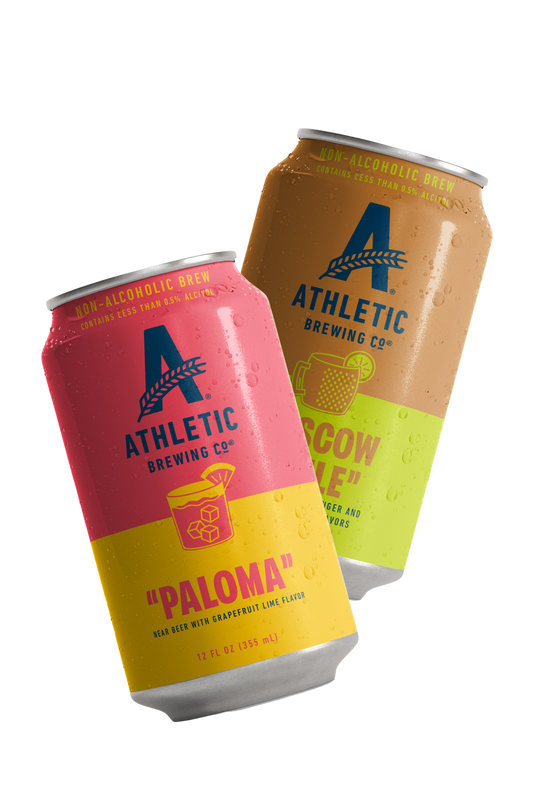
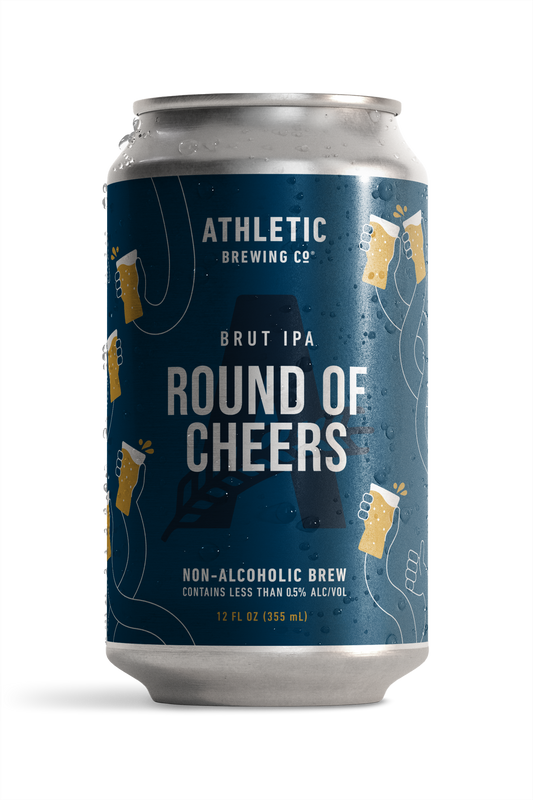
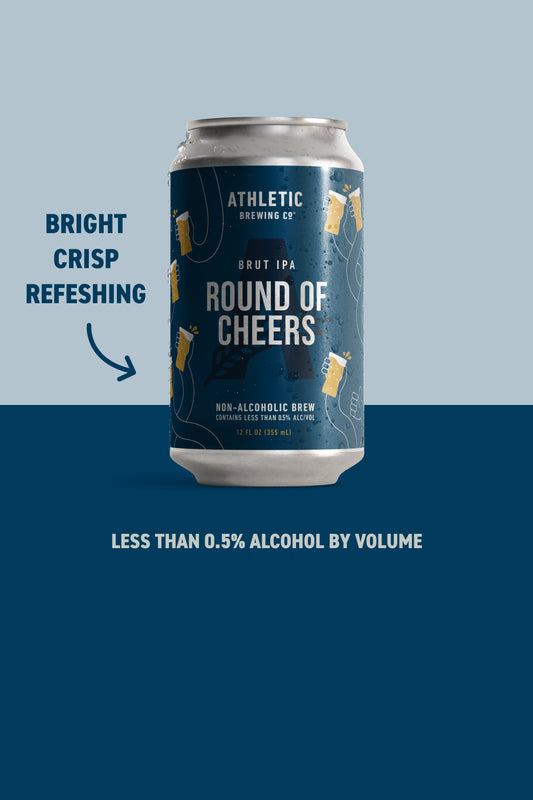
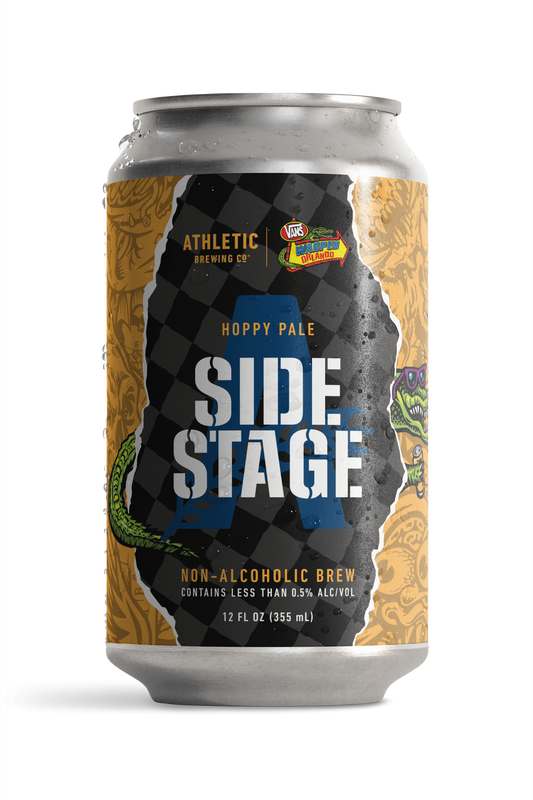

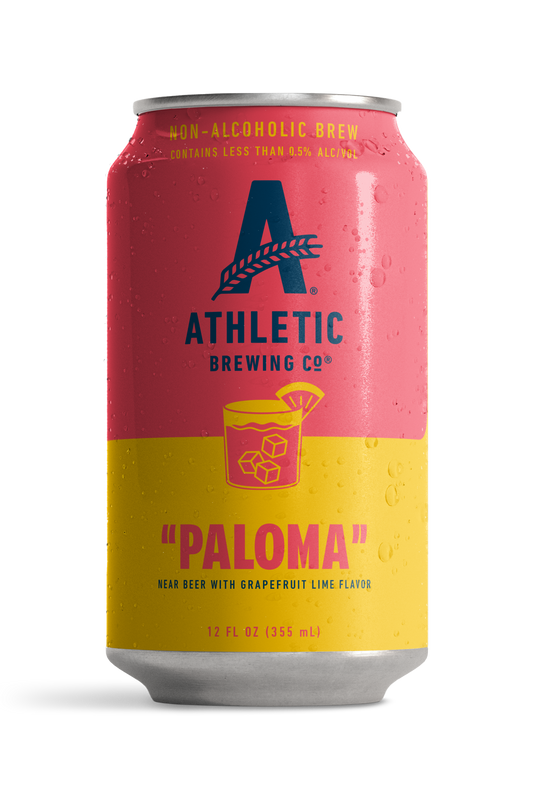
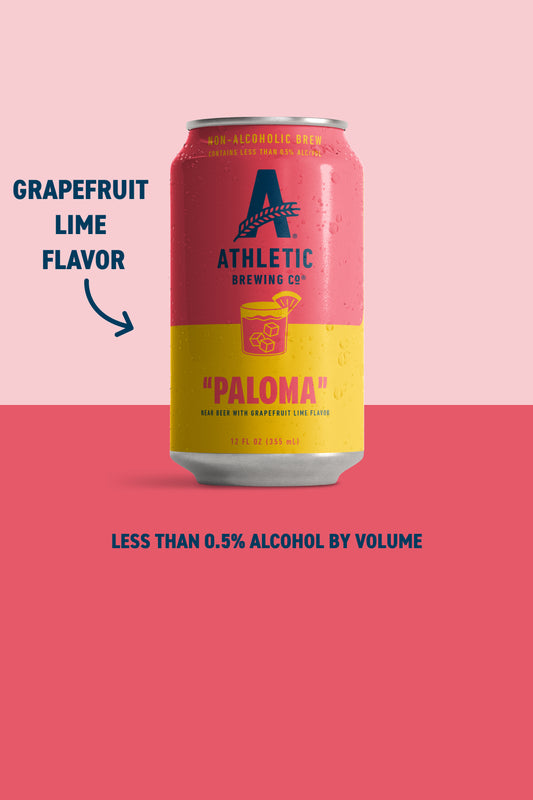
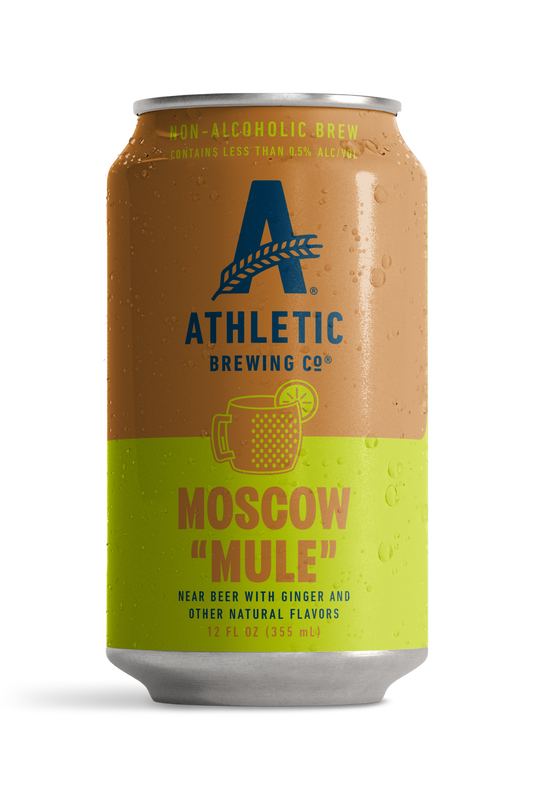
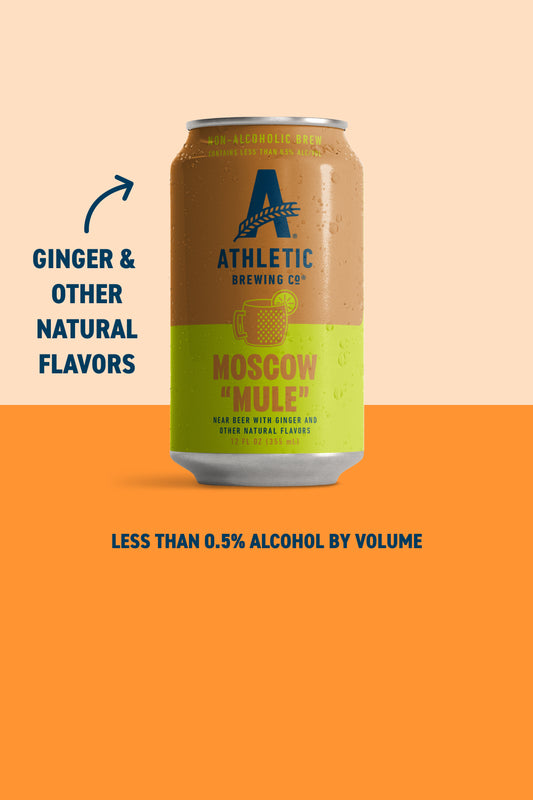
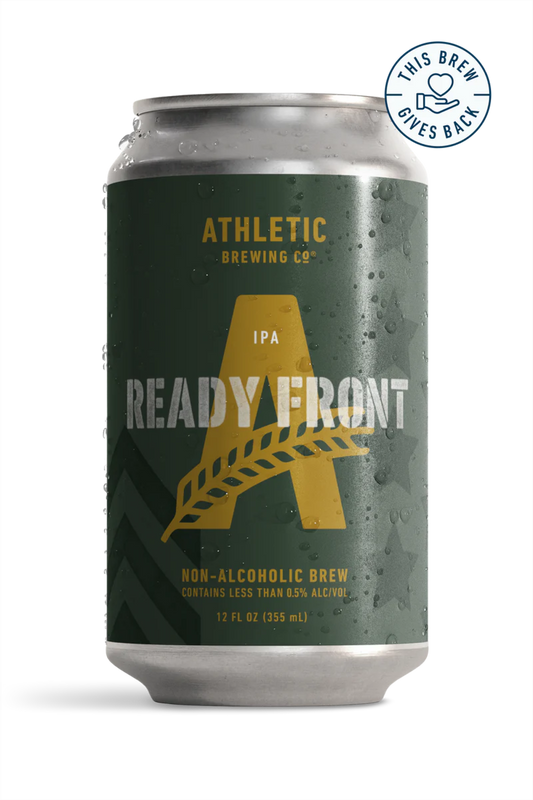
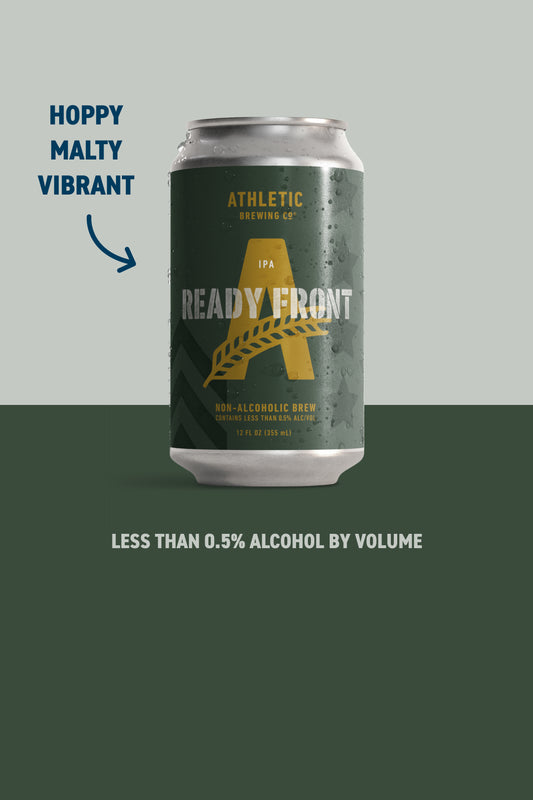
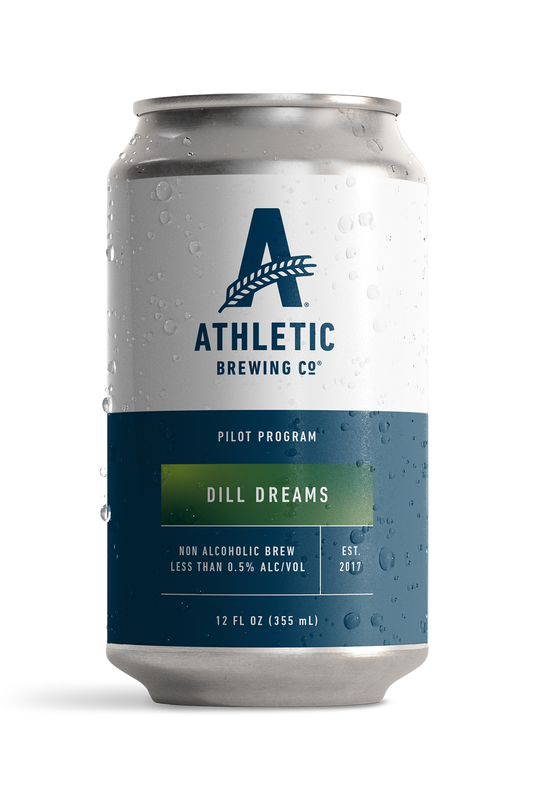

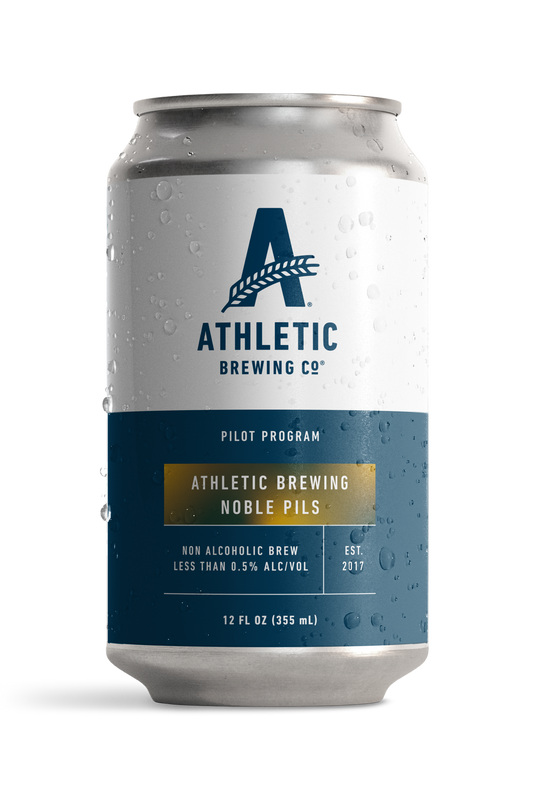
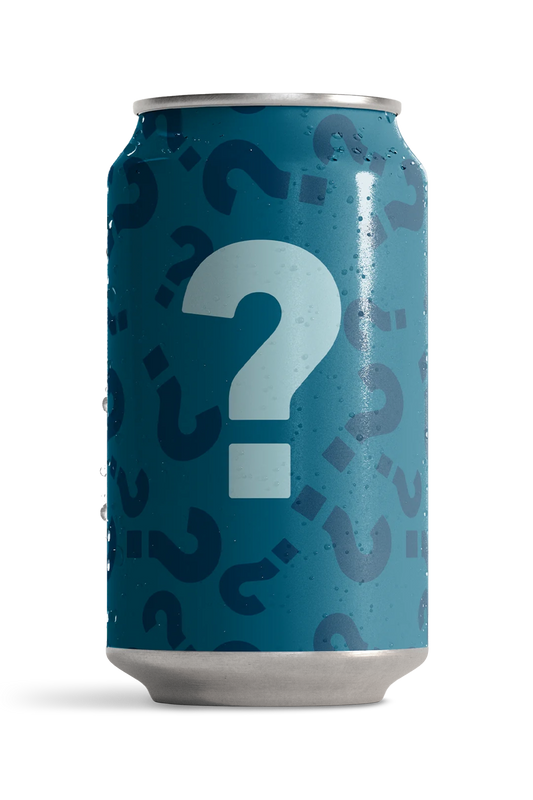
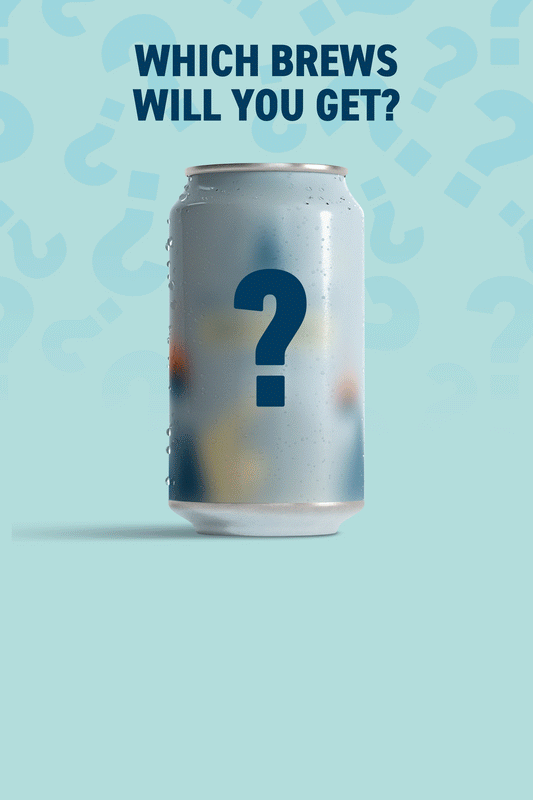
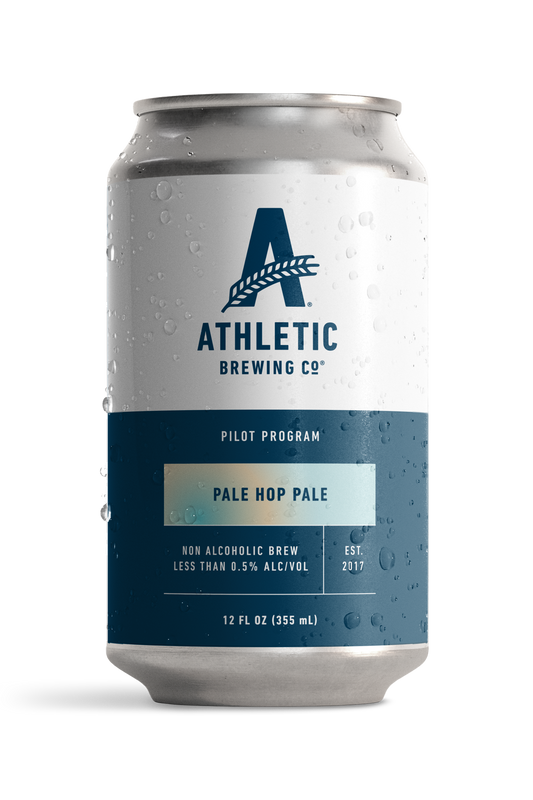
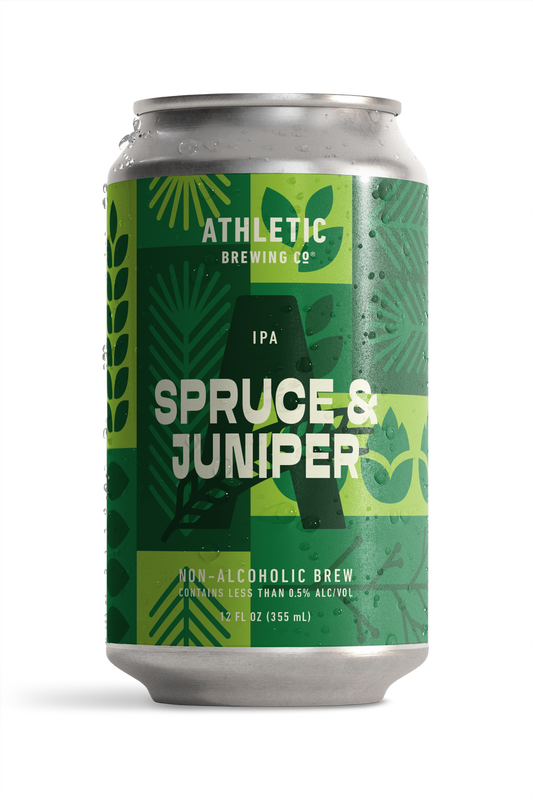










 Your Privacy Choices
Your Privacy Choices











